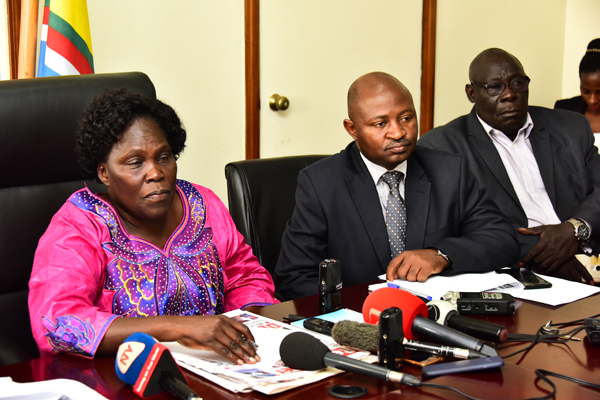By Catherine Ageno
The lack of accredited training institutions has been blamed for the poor implementation of the Integrated Early Childhood Policy(ECD) in Uganda. The policy that was launched by the ministry of education and sports in 2016 targets children from conception to 8 years and has been proven through various research to contribute to social, economic and human development, increase of workforce productivity, and poverty reduction.
However, the Uwezo Six Learning Assessment Report: “Are our children learning” highlights inadequate numbers of trained teachers as one of the challenges regarding implementation of the policy. The report shows that only 4 out of 10 pre-primary teachers are trained and that there is a lack of clarity on who is responsible for hiring these teachers.
Speaking to KFM, Mr.Godfrey Ojuu, the head of the Early Childhood Development department at Makerere University points pointed to the discrepancies between government policy and practice. “Although government expects to achieve quality education at pre-primary level, it has not done enough to support teacher preparation. There are not enough accredited training institutions”, he says.
He says only 100 out of 300 colleges affiliated to Kyambogo, Makerere and Ndejje universities have so far been accredited for this specialized teacher training.
Mr.Ojuu explains that with the growing demand for pre-primary teachers, government must consider ways of increasing the number of teachers if it is to effectively promote child rights to survival, protection, development and participation.
Government introduced a policy to compel all primary schools to have pre-primary sections due to the growing demand of Early Childhood Education, but has never made any efforts to make it attractive. Mr. Ojuu says the failure by the sector to attract teachers because of poor pay has also greatly contributed to the poor slow and implementation of the ECD.
Other stakeholders have blamed the poor implementation of the ECD policy on its segmented nature. Mr. Shafik Ssekalala, program director Madrsa ECD program an initiative of the Agakhan Foundation says currently there is no link between the home, pre-school and the health services offered to children below the age of 8.
“The idea behind this policy is really to see that children get equitable access to quality and relevant ECD services for their holistic development right from conception in a coordinated manner between all key sectors”, he says.
He also urges government to invest more in ECD because it offers outstanding returns both in human and financial terms. He says well targeted ECD programs cost less to produce more lasting results for a growing economies like Uganda.
Mr.David Kibwika, the Headmaster of Misoli Beach Primary School in Mayuge District has also voiced his frustration with lack of support from government for pre-primary teaching services. He says the schools Parents and Teachers’ Association resolved to start a pre-primary section in 2017 with the hope of getting some support from the ministry of education but not much has been done.
“We lack qualified pre-primary teachers so we have some parents who are volunteering to teach in the nursery section but that is not sustainable especially that most parents are illiterate”, says Mr. Kibwika. He says government has relegated the planning, management of pre-school education to parents which has affected quality of service.
Various stake holders in the ECD program have thus questioned government’s commitment to its effective implementation but efforts to get the responsible officials at the ministry of education to comment on the matter have so far been futile.








